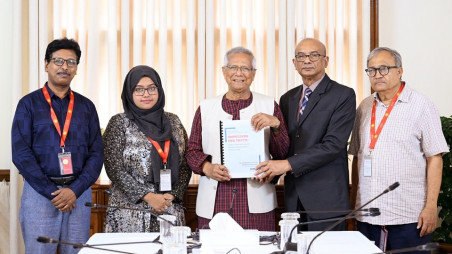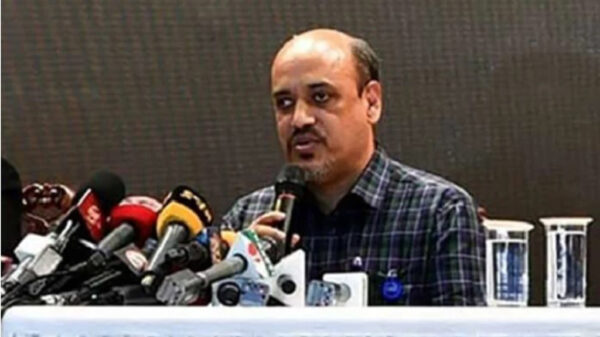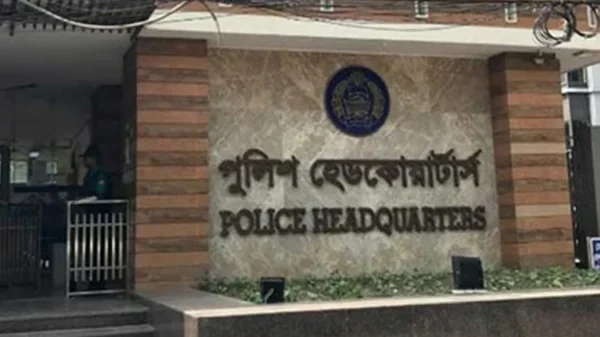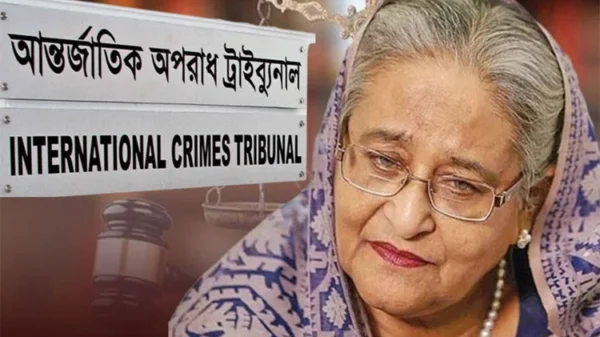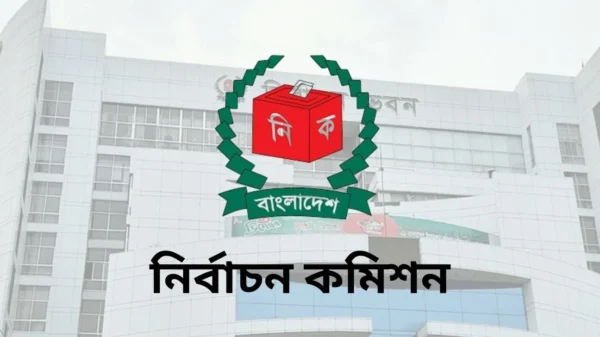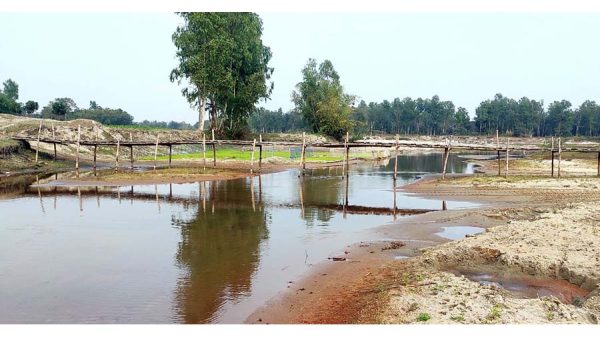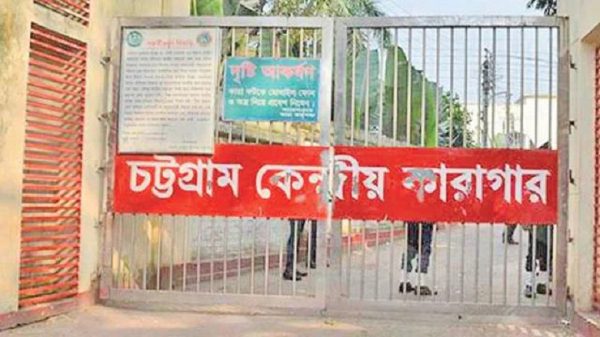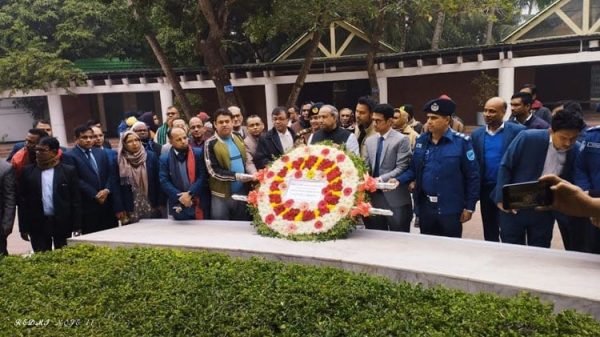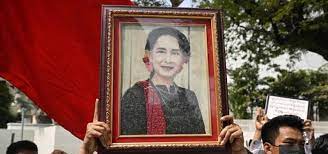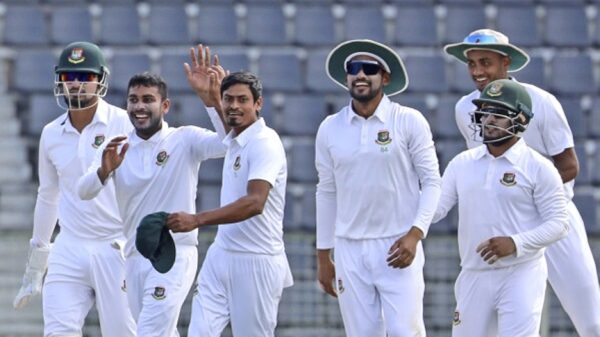Staff Reporter:
Speakers at a roundtable discussion on Thursday said Bangladesh has made commendable progress in advancing healthcare access and outcomes in recent years.
However, they said ensuring equitable access to quality primary healthcare services remains a significant challenge, particularly in remote and underserved areas. The COVID-19 pandemic has further underscored the importance of robust and accessible primary healthcare services.
The United Nations Office for Project Services (UNOPS) Bangladesh hosted the 10th episode of “SDG Café,” a monthly roundtable discussion series dedicated to addressing pressing development challenges and co-creating innovative solutions.
As part of UNOPS’ commitment to getting Agenda 2030 back on track, this episode placed the spotlight on the Sustainable Development Goals (SDG 3), dedicated to ensuring healthy lives and promoting well-being for all in Bangladesh and beyond.
This roundtable with the theme, “Primary Healthcare Challenges in Bangladesh,” laid bare existing disparities and vulnerabilities within the healthcare system, highlighting the urgent need for innovative approaches and collaborative efforts to strengthen primary healthcare delivery.
Additionally, Bangladesh faces a shortage of healthcare workers, particularly in rural areas. The World Bank estimates that Bangladesh has a density of only 0.8 doctors per 1,000 people, which is far below the WHO recommendation of 4.45 doctors per 1,000 people.
The highlight of the event was the keynote speech delivered by public health expert Dr Be-Nazir Ahmed, coordinator of the Bangladesh TA Project at the Mérieux Foundation under the French Development Agency (AFD).
He said, “We are at a pivotal moment in healthcare, where the convergence of innovation and dedication can reshape the landscape of primary healthcare in Bangladesh. As we gather to address the challenges and chart the course forward, it’s imperative to ground our discussions in data-driven insights and practical solutions.”
Dr Be-Nazir added, “According to the World Bank, as of 2022, only 61% of the population in Bangladesh had access to basic healthcare services, indicating a significant gap in coverage. Communicable diseases such as diarrhea, pneumonia, and tuberculosis continue to pose significant challenges to public health, with non-communicable diseases like diabetes and cardiovascular ailments on the rise.
“A crucial element is strengthening bio-safety practices within healthcare facilities. This safeguards both patients and healthcare workers from infectious diseases, which are a major public health concern in Bangladesh.”
The partnerships and program development manager of UNOPS in Bangladesh, Berhanu Assefa Tegegne, acknowledged the gravity of the situation and the crucial need for collaborative efforts.
He said, “As UNOPS, we are deeply committed to supporting the Government of Bangladesh in achieving its Sustainable Development Goals, particularly in the realm of primary healthcare. According to WHO, Bangladesh has made remarkable progress in healthcare, but challenges persist, especially in ensuring equitable access and quality services for all.
“In 2021, the infant mortality rate in Bangladesh was 24 deaths per 1,000 live births, and the under-five mortality rate was 38 deaths per 1,000 live births. These rates, while improved from previous years, are still above the global averages.”
Berhanu Assefa further highlighted, “With data indicating that around 80% of healthcare in Bangladesh is provided by the private sector, there’s a critical need for strategic partnerships and innovative solutions to strengthen the public healthcare system. Through collaborative efforts and leveraging technology, we can enhance healthcare delivery, improve infrastructure, and empower communities towards a healthier future.
“Despite the challenges, there are also reasons for optimism. The Government of Bangladesh has made primary healthcare a priority, and there are a number of initiatives underway to improve access to quality care. UNOPS is proud to be a partner in these efforts, and we are committed to working with the government to ensure that everyone in Bangladesh has access to the healthcare services they need.”
After the keynote speeches, a lively open discussion unfolded, providing a platform for participants to exchange thoughts, share insights, and delve into potential collaborations aimed at advancing primary healthcare services.
The roundtable discussion sought to identify the primary healthcare challenges in Bangladesh. This SDG Café convened essential stakeholders in Bangladesh, including government representatives, international organisations, and development partners like the Health Services Division, Foreign, Commonwealth & Development Office (FCDO), World Bank, Asian Development Bank (ADB), UN agencies, academics, and public health experts.


